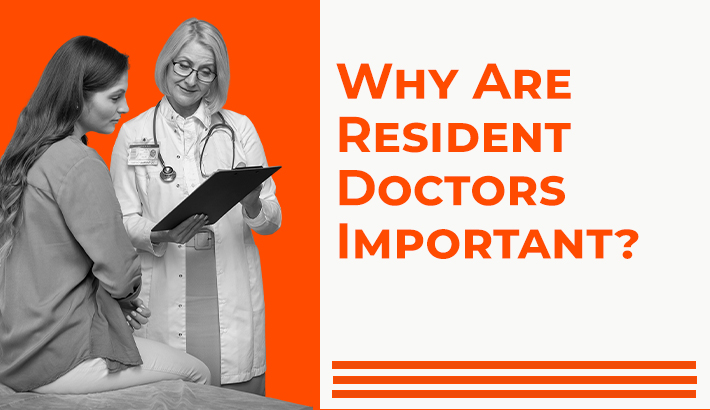In today's ever-evolving world, few professions have the potential to make a profound impact on society like a career in the medical field. The medical industry serves as a beacon of hope, compassion, and expertise, with healthcare professionals dedicating their lives to the betterment of humanity. This article explores the multifaceted nature of medical jobs, highlighting their significance, challenges, and rewards.
It benefits not only society as a whole but even those who prefer to keep a resume that stands out from the rest, having a medical job event in your resume can make all the difference, thus making it one of the finest achievements that one can achieve. Embarking on a career in the medical field is not just a professional choice; it is a life-altering decision that can shape an individual's personal and intellectual growth. Medical jobs offer unique experiences, challenges, and growth opportunities that can have a profound impact on one's career trajectory.
The Crucial Importance of Medical Jobs
India, with its vast population and diverse healthcare needs, relies heavily on the dedication and expertise of its medical professionals. The field of medicine in India is a dynamic and ever-growing sector, encompassing a wide range of medical jobs that play a crucial role in providing healthcare services to the nation.
Resident Doctors Of India hold immense importance in society, as they encompass a wide range of roles dedicated to promoting health, preventing diseases, and providing care to individuals in need. From doctors and nurses to technicians and researchers, medical professionals are instrumental in improving the quality of life for individuals and communities.
The importance of medical jobs cannot be overstated. Medical professionals are dedicated to preserving and restoring health, alleviating suffering, advancing medical knowledge and innovation, promoting public health, and providing emergency and critical care. Their commitment and expertise have a profound impact on individuals, families, and communities. Without the contributions of medical professionals, our ability to live healthy, productive lives would be greatly compromised. As we continue to face new challenges and medical advancements, medical jobs will remain crucial in shaping the well-being of society and ensuring a healthier future for all.
The Honourable Duty Of A Healthcare Professional
A career in the medical field has the power to transform an individual both personally and professionally. The impact of medical jobs extends far beyond the realm of healthcare, equipping individuals with invaluable skills and qualities that can shape their career trajectories in remarkable ways. Multidisciplinary collaboration, emotional intelligence, adaptability, and the ability to make a meaningful impact are just some of the medical profession's transformative aspects. Regardless of the path chosen, the experiences gained from a career in the medical field become lifelong assets, guiding individuals toward success and fulfillment in their chosen professions.
Contributing to the medical field plays a pivotal role in your resume and leaves a lasting impression due to its relevance. Such as:
Personal and Professional Development:
A career in the medical field demands a high level of discipline, dedication, and continuous learning. Pursuing medical knowledge and expertise fosters personal growth, encouraging individuals to push their limits, develop resilience, and embrace lifelong learning. Resident Doctors Of India provide an immersive environment that challenges individuals to excel, honing their critical thinking, problem-solving, and decision-making skills. These qualities transcend the boundaries of the medical profession and become valuable assets in any career path.
Multidisciplinary Collaboration:
Medical jobs require teamwork and collaboration among various professionals, such as doctors, nurses, technicians, and administrative staff. The ability to work effectively in interdisciplinary teams is a crucial skill developed in the medical field. Through collaborative efforts, medical professionals learn the importance of effective communication, adaptability, and respect for diverse perspectives. These transferable skills are highly sought after in any professional setting, allowing individuals to excel in team-based projects and foster harmonious work environments.
Emotional Intelligence and Empathy:
Medical jobs bring individuals face-to-face with the joys and challenges of the human condition. Interacting with patients and their families instils a deep sense of empathy and compassion. Medical professionals learn to navigate delicate and emotionally charged situations, honing their emotional intelligence and interpersonal skills. This heightened understanding of human emotions and experiences can greatly benefit individuals in any career, fostering strong relationships, effective leadership, and the ability to connect with others on a profound level.
Adaptability and Resilience:
The medical field is characterized by constant change and innovation. Medical professionals must adapt to new technologies, treatment modalities, and evolving healthcare systems. This adaptability fosters a mindset of resilience and flexibility, enabling individuals to navigate uncertainty and overcome challenges. The ability to embrace change and thrive in dynamic environments is an invaluable skill that can translate into success across various career paths.
Making a Meaningful Impact:
Medical jobs provide a unique opportunity to make a positive impact on individuals and society as a whole. The ability to heal, save lives, and alleviate suffering, which fosters a profound sense of purpose. Knowing that one's work has tangible, life-altering effects creates a deep sense of fulfillment and satisfaction. This intrinsic motivation to make a difference extends beyond the medical field, driving individuals to seek careers that allow them to contribute meaningfully to the well-being of others.
Resident Doctors Association: What is it?
A Resident Doctor's Association is an organization that represents the interests and concerns of resident doctors within a healthcare institution or hospital. Resident doctors are medical graduates who are pursuing postgraduate training in a specific speciality, such as internal medicine, surgery, paediatrics, or obstetrics and gynaecology.
The primary purpose of a Resident Doctor's Association is to advocate for the rights and welfare of resident doctors. They act as a collective voice to address issues related to working conditions, education, training, and patient care. Resident Doctors Association often works in collaboration with hospital administration, medical institutions, and government bodies to address concerns and negotiate improvements in working conditions and training programs.
The Heavy Responsibilities of the Medical Field
The medical field is a noble and revered profession that carries immense responsibilities. Healthcare professionals shoulder the crucial task of preserving and improving human life. From diagnosing and treating illnesses to providing compassionate care, the responsibilities within the medical field are both vast and significant. Medical jobs in India epitomize the commitment to healing and serve as the backbone of the nation's healthcare system.
Patient Care and Safety:
One of the primary responsibilities of healthcare professionals is to provide high-quality patient care while ensuring their safety. This involves accurate diagnosis, appropriate treatment, and comprehensive care throughout the patient's journey. Medical jobs in India must be professional, prioritize patient well-being, employ evidence-based practices, and maintain open communication with patients and their families.
Lifesaving Interventions:
Medical professionals have the responsibility to make critical, sometimes life-or-death decisions. Surgeons perform intricate operations, anesthesiologists administer anesthesia, and emergency room physicians stabilize patients in critical conditions.
Health Promotion and Disease Prevention:
Healthcare professionals play a pivotal role in promoting public health and preventing diseases. They educate individuals and communities on healthy lifestyles, disease prevention strategies, and vaccination programs.
Conclusion
The responsibilities within the medical field are profound and wide-ranging. Residents Doctor’s of India and healthcare professionals bear the weight of caring for individuals during their most vulnerable moments, making critical decisions, promoting health, and advancing medical knowledge.
The impact of their responsibilities extends beyond individual patient interactions, as they contribute to the well-being of communities and shape the trajectory of healthcare systems. It is through their unwavering dedication, expertise, and ethical conduct that medical professionals fulfill their responsibilities, making the medical field an indispensable pillar of society's health and well-being.




